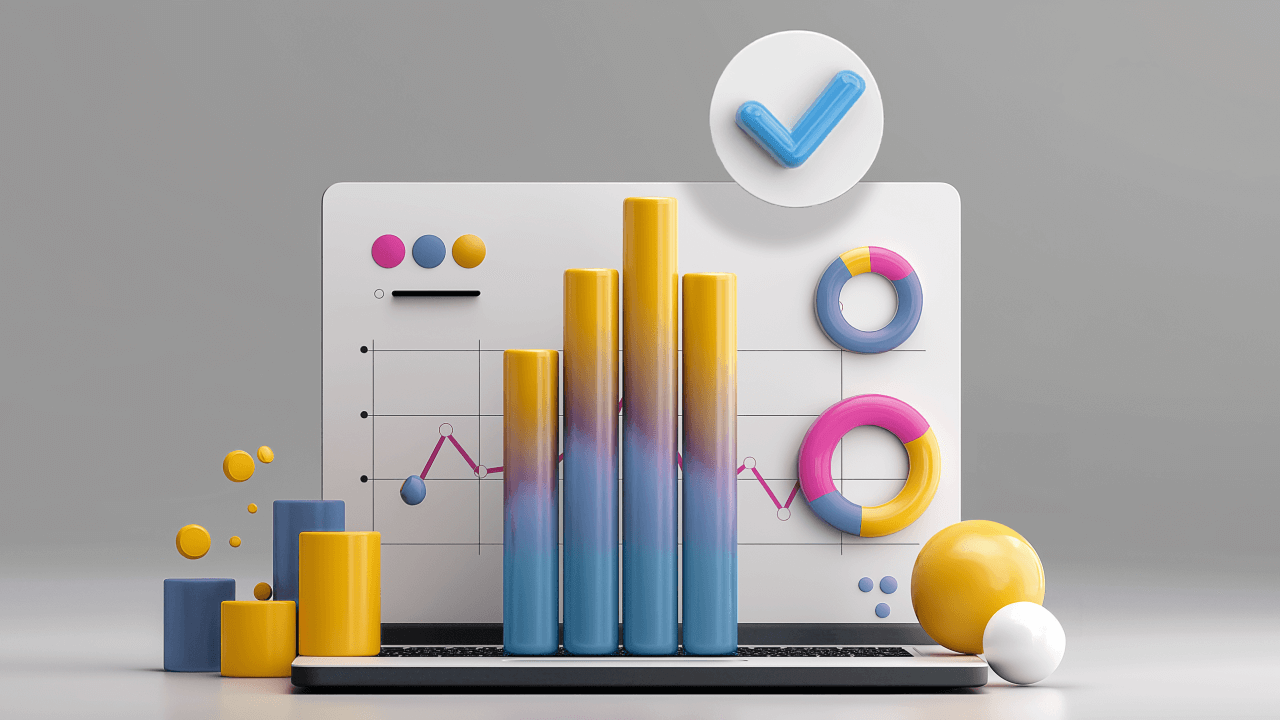How BI tools can help you win sales

When it comes to sales data, most businesses have enough to fill a book. But what they don’t have is a way to make all their data work for them rather than against them.
Analytics are essential to helping companies understand the buying habits of their customer base and how best to market and sell products. Business intelligence tools can assist you in turning your company’s data into actionable insights. But how do you go about choosing the right business intelligence tool for your needs? And how can you use it to improve your sales process?

What are sales analytics?
Business analytics is the process of collecting, analyzing, and interpreting business data to gain insights that can help improve business performance.
Analytics can be applied to almost any kind of business data, such as sales data, marketing data, financial data, and so on. Using a BI tool, users can compare their different sources of data to find trends and relationships. Knowledge of these trends allows businesses to make better, more successful decisions.
Sales analytics is the process of using data to improve sales performance. This takes the business data mentioned above and applies it to the sales process specifically.
Some of the ways that sales analytics can be used to improve performance include:
- Identifying trends in customer behavior: This can help companies adjust their sales strategies to better match customer needs and preferences.
- Forecasting future sales: Businesses can develop more accurate sales forecasts with accurate sales data. This can help them plan for things like inventory levels and budgeting.
- Improving lead conversion rates: By analyzing data on past leads, companies can identify patterns and areas for improvement in their lead conversion process.
- Optimizing sales territories: By analyzing customer location data, companies can optimize their sales territories for maximum efficiency.
- Managing the sales pipeline: Data can be used to track the progress of each opportunity through the sales pipeline and identify areas of improvement.
As you can imagine, sales analytics data is incredibly valuable. But it’s only valuable if you have a way to make sense of it all. This is where business intelligence tools come in.
What’s a BI tool?
With sales data in hand, the next step is to start turning it into insights that you can use to improve your sales process. This is where business intelligence tools come in.
Business intelligence (BI) tools are software applications that help you collect, store, analyze, and visualize data. BI tools can range from simple data visualization software to complex data warehouses and everything in between.
The key features of BI tools that are most relevant to sales analytics include the following:
- Data collection: BI tools can help you collect data from multiple sources, including CRM systems, sales data platforms, financial data platforms, and more.
- Data storage: BI tools provide a central repository for all your company’s data. This makes it easy to access and query when you need it.
- Data analysis: BI tools include a variety of features and functions that make it easy to analyze data, such as pivot tables, reporting, and data mining.
- Data visualization: BI tools also provide a way to visualize data in the form of charts, graphs, maps, and other visualizations. This can help you spot trends and patterns that would be difficult to see in raw data.
When you have a central place to store all your company’s data and the tools you need to make sense of it, you’re in a much better position to improve your sales performance.

How to leverage BI towards sales analytics
BI tools are useful in a general sense; managers and executives can use them to track broad trends and formulate company-wide strategies. But they’re also valuable on a small scale — teams and departments can make good use of a BI tool for their department-specific work.
Nowhere is that more true than in sales. Business intelligence can improve basically every part of the sales experience, from initial customer acquisition to closing deals, to upselling and winning repeat business.
Here are just a few ways that business intelligence can improve sales:
Enhance sales forecasting
Data such as customer location, past buying behavior, and current sales trends can be used to enhance the accuracy of your sales forecast. This is valuable information that can help you plan your inventory levels and budget more effectively.
Using this information, a BI tool can predict how sales will trend in the future. A BI tool can spot broad seasonal trends as easily as it can catch minute-by-minute daily trends, which allows businesses to adjust their strategies at both large and small scales.
When you can accurately predict future sales, you can avoid the lost sales that come from being understocked. You can also save money by avoiding the excess inventory that results from over-predicting sales.
Improve lead conversion rates
One of the most important aspects of a successful sales process is converting leads into customers. By analyzing data on past leads, businesses can identify patterns and areas for improvement in their lead conversion process.
Some of the things that businesses can look at to improve their lead conversion rates include:
- The type of lead most likely to convert: Businesses can use data to identify the types of leads with the highest conversion rates. This can help them focus their resources on leads that are more likely to convert.
- The time of day that leads are most likely to convert: Data can also be used to identify the best time of day to contact potential customers. This can help businesses maximize their chances of converting leads into customers.
- The channels that are most effective for reaching potential customers: By analyzing data on how leads were reached, businesses can determine which channels are most effective for reaching potential customers. This can help them focus their marketing efforts on channels that are most likely to result in conversions.

Optimize sales territories
Businesses can optimize their sales territories for maximum efficiency by analyzing customer location data. This means that businesses can allocate their resources (such as salespeople and marketing budgets) in a way that allows them to reach the most potential customers possible.
This means businesses can avoid spending too much time and money on areas with low potential for sales. For example, a company might find that a certain territory has a high concentration of potential customers who are in the same industry. This would be an ideal territory for that business to focus on.
This isn’t just physical territory, either. Businesses can use their sales analytics to spot demographics that they’re undertargeting, potentially revealing new markets or highlighting areas that need more marketing.
Monitor sales pipeline progress
The sales pipeline is a key part of the sales process, and it’s essential to track its progress closely. Data can be used to track the progress of each opportunity through the sales pipeline and identify areas of improvement.
A BI tool can easily connect to common customer relationship management tools like Salesforce. From there, users can analyze their lead and pipeline data in other contexts and with other data sources, allowing for additional insight.
This information is valuable for understanding where your business is succeeding and where it needs improvement. It can also help you decide which opportunities to pursue and which ones to let go of.
Understand customer behavior
Data can be used to understand customer behavior to better match customer needs and preferences. This information is valuable for developing both long-term and short-term marketing plans.
It’s also useful for understanding how customers interact with your business both online and offline. This understanding will allow you to fine-tune your marketing efforts to produce better results. Plus, when you know what customers want, you can provide them with a better overall experience.
Top considerations when choosing a BI tool
When choosing a business intelligence tool for your sales analytics, there are key points to remember.
The first is to ensure that the software can handle the volume of data you expect to feed into it. Next, make sure that the BI tool allows for customization so that it can be used to analyze a wide variety of data sets.
Prioritize looking for tools that have the features and connections that you need. You don’t want to invest in a BI tool and then find out it doesn’t have dashboarding features or can’t connect to Salesforce automatically.
Finally, don’t forget to evaluate the customer service and support offered by the BI tool provider. This is important in case you encounter any issues while using the software.
By keeping these considerations in mind, you can be sure to choose the right business intelligence tool for your sales analytics needs.
Enhance your analytics with BI
Business intelligence tools can help any business, big or small, make the most of its sales data. But it’s important to carefully consider which BI tool is right for your company.
BI tools vary in functionality, ease of use, and cost. Once you’ve found a BI tool that meets your needs, it’s crucial to understand how best to use it.
BI reporting is different from traditional data management. It requires the ability to understand how data is presented to the user, their needs, and how they want to view it. BI tools can be a great way to turn your sales data into actionable insights. But you need to make sure you’re using the right tool for the job.
Look for a BI tool that is customizable, easy to use, and offers great customer service and support. With the right BI tool in place, you can take your sales analytics to the next level.
Domo transforms the way these companies manage business.








